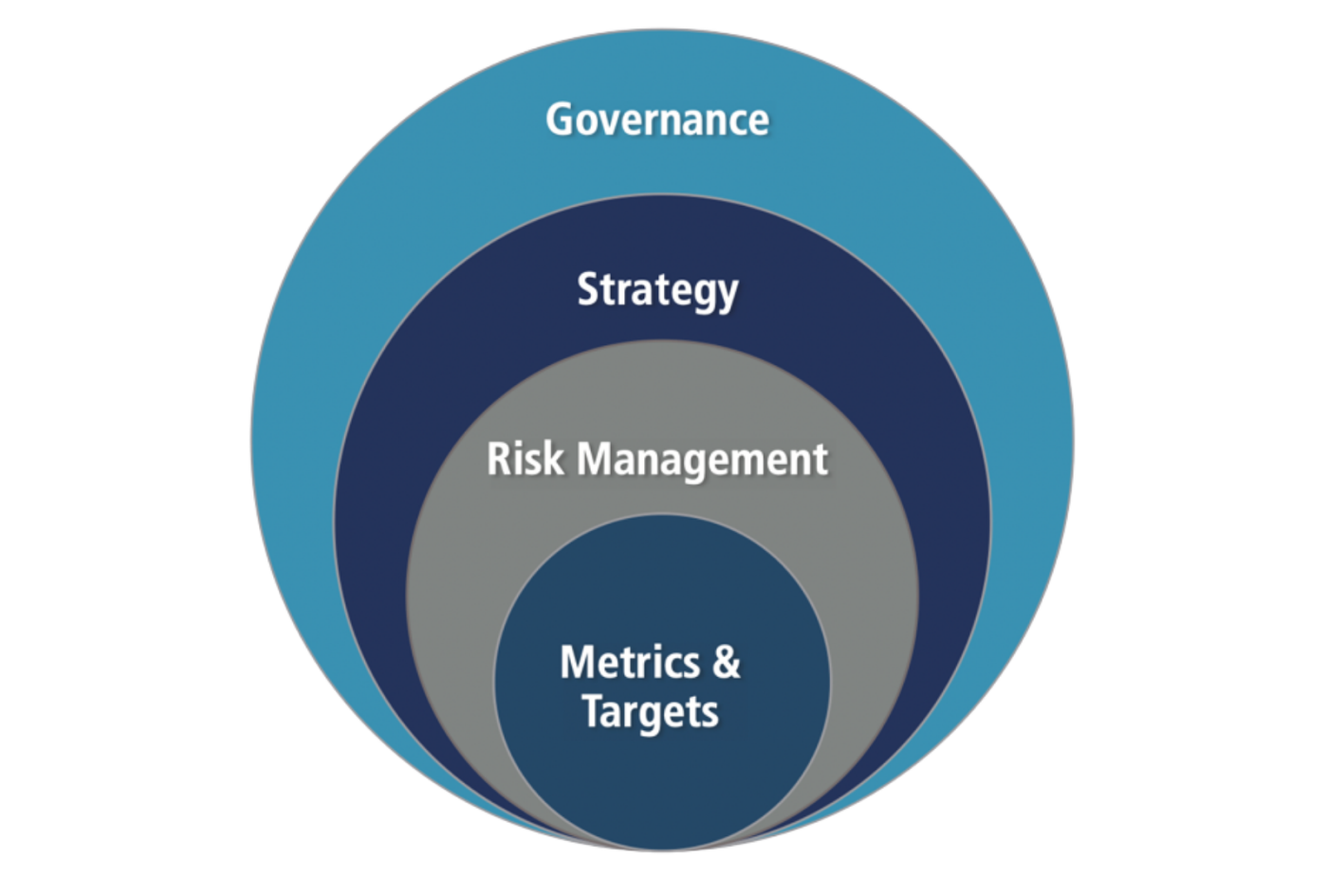
What is the Task Force on Climate-Related Financial Disclosures (TCFD)?
The TCFD was created in December 2015 by the Financial Stability Board, an international body that seeks to strengthen and protect global financial markets from systemic risks such as climate change.
As an integral part of business and investment decisions, the TCFD recommendations, which were released in 2017, provide guidance on how to disclose information on the financial implications of climate-related risks and opportunities.
31 members of the G20 Task Force represent both preparers and users of financial disclosures. By improving the quality, consistency, and transparency of climate-related financial disclosures, economies will have the necessary information to assess the impact and effects of an organization on climate change, chaired by Michael R. Bloomberg, founder of Bloomberg L.P.
The TCFD is supported by more than 1,700 organizations worldwide, both private and public.
Timeline:
- June 29, 2015: The Financial Stability Board (FSB) announces the creation of the Task Force on Climate-related Financial Disclosures (TCFD).
- December 2016: The TCFD publishes its final recommendations.
- June 2017: The FSB launches the TCFD Implementation Guide.
- June 2018: The TCFD announces that over 100 companies have committed to implementing its recommendations.
- December 2018: The TCFD releases its first annual progress report, which highlights that disclosure has increased since the recommendations were published.
- June 2020: The TCFD announces that over 1,000 companies have committed to implementing its recommendations.
- June 2021: The TCFD releases its third annual progress report, which highlights the growth of TCFD-aligned disclosure and its integration into mainstream financial reporting.
The TCFD continues to work towards promoting the implementation of its recommendations by companies, investors, and other stakeholders.
There are four core elements of how companies operate that inform the disclosure recommendations: governance, strategy, risk management, and metrics and targets.
The four recommendations are interrelated and supported by 11 recommended disclosures that provide investors and others with information to help them understand how reporting organizations think about and assess climate-related risks and opportunities.

Source: About | Task Force on Climate-Related Financial Disclosures (TCFD) (fsb-tcfd.org)
The TCFD's 11 recommendations for disclosure standards are as follows:
- Governance: Companies should explain their governance around climate-related risks and opportunities.
- Strategy: Companies should describe the actual and potential impacts of climate-related risks and opportunities on their business strategy, including governance and risk management processes.
- Risk Management: Companies should provide information on their processes for identifying, assessing, and managing climate-related risks.
- Metrics and Targets: Companies should disclose the metrics and targets used to assess and manage climate-related risks and opportunities.
- Resilience: Companies should provide information on the resilience of their strategy, processes, and financial plan to a range of climate scenarios.
- Scenario Analysis: Companies should describe the scenarios used for their climate-related financial disclosures and how they reflect the potential range of physical and transition risks and opportunities.
- Impact on Business, Strategy and Financial Planning: Companies should disclose the actual and potential impacts of climate-related risks and opportunities on their business, strategy, and financial planning.
- Transparency in Reporting: Companies should disclose their greenhouse gas (GHG) emissions, including both Scope 1, 2, and 3 emissions, in line with the GHG Protocol.
- Adaptation: Companies should explain how they are adapting to physical impacts of climate change.
- Service Providers: Companies should disclose the role of service providers in assisting with climate-related financial disclosures.
- Stakeholder Engagement: Companies should describe their engagement with stakeholders on climate-related risks and opportunities.
The FSB has requested the Task Force to continue its work since the publication of the TCFD recommendations—promoting adoption of the framework, providing further guidance, supporting educational efforts, monitoring financial disclosure practices related to climate change in order to ensure that they align with the recommendations of the TCFD, and preparing annual status reports.
For inquiries please contact:
regulatory-advisory@rbinternational.com
RBI Regulatory Advisory
Raiffeisen Bank International AG | Member of RBI Group | Am Stadtpark 9, 1030 Vienna, Austria | Tel: +43 1 71707 - 5923